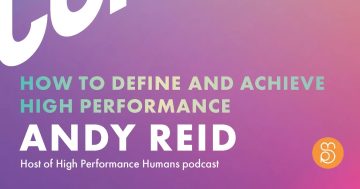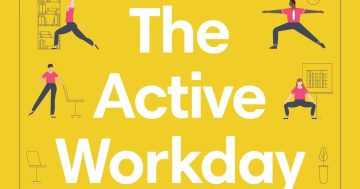Gretchen Rubin offers advice on mental strength from a 1930s best-selling author that is still relevant today.
 Dorothea Brande was an American writer and editor, well known for her books Wake Up and Live and Becoming a Writer.
Dorothea Brande was an American writer and editor, well known for her books Wake Up and Live and Becoming a Writer.
In 1936, in Wake Up and Live, Ms Brande suggests several mental exercises to make your mind keener and more flexible.
These exercises are meant to pull you out of your usual habits, give you a different perspective, and put you in situations that will demand resourcefulness and creative problem-solving.
Ms Brande argues that only by testing and stretching yourself can you develop mental strength.
Even apart from the goals of creativity and mental flexibility, her exercises make sense from a happiness perspective.
One thing is clear: Novelty and challenge bring happiness.
People who stray from their routines, try new things, explore, and experiment tend to be happier than those who don’t.
This is a challenge for me: I love familiarity and mastery.
Because, of course, as Ms Brande herself points out, novelty and challenge can also bring frustration, anxiety, confusion, and annoyance along the way.
It’s the process of facing those challenges that brings the “atmosphere of growth” so important to happiness.
To be happy, you must think about feeling good, feeling bad, and feeling right, in an atmosphere of growth.
Consider these exercises.
Spend an hour each day without saying anything except in answer to direct questions, in the midst of the usual group, without creating the impression that you’re sulking or ill.
Be as ordinary as possible, but do not volunteer remarks or try to draw out information.
Think for 30 minutes a day about one subject exclusively. Start with five minutes.
Talk for 15 minutes a day without using I, me, my, mine.
Pause on the threshold of any crowded room and size it up.
Keep a new acquaintance talking about himself or herself without allowing him to become conscious of it.
Turn back any courteous reciprocal questions in a way that your auditor doesn’t feel rebuffed.
Talk exclusively about yourself and your interests without complaining, boasting, or boring your companions.
Plan two hours of a day and stick to the plan.
Set yourself 12 tasks at random: e.g., go 20 kilometres from home using an ordinary conveyance.
Go 12 hours without food; eat a meal in the unlikeliest place you can find; say nothing all day except in answer to questions; stay up all night and work.
From time to time, give yourself a day when you answer “yes” to any reasonable request.
Doing this kind of exercise can seem artificial, but it can also be a fun way to put a little challenge into your ordinary routine.
*Gretchen Rubin is the author of Better Than Before, The Happiness Project, and Happier at Home. She writes about happiness and habit-formation and can be followed on Twitter @gretchenrubin
This article first appeared on Gretchen’s blogsite











